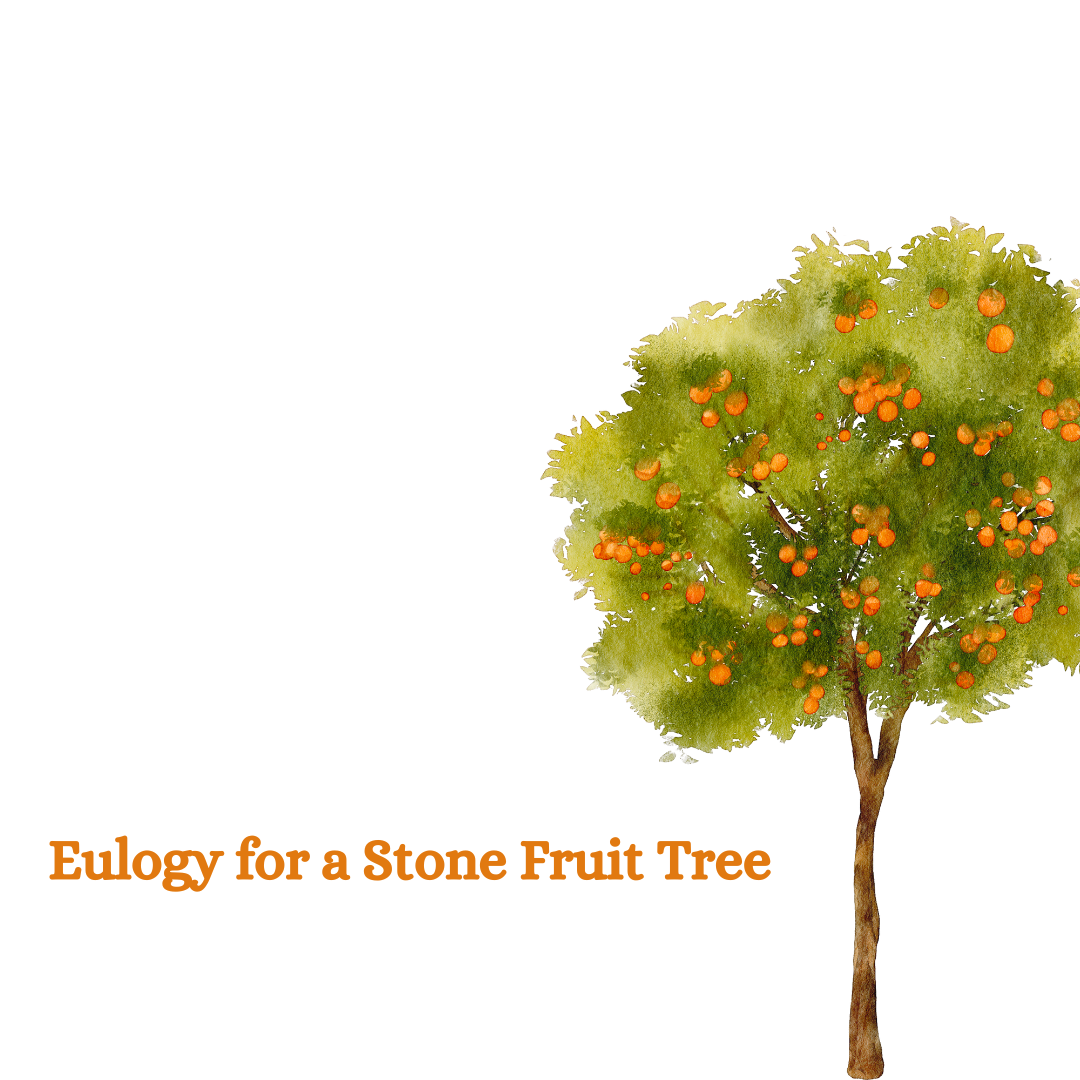I woke up to find you already kissing the ground from which you were raised /blood rush and overwhelmed / I did nothing/ but let out a small earnest sigh /it was early (5 am) / I didn’t want to start my day like this / however/ I’m sure you didn’t either /I went to work knowing you’d still be there /and when I returned I had hoped my neighbors would have started the process of your sepulture /yet (which I predicated) / you lay there / perpendicular/ parallel/ remnants of new growth / a clear sap that tasted insignificant that in very particular light had subtle tones of amber/ I thought to myself that there was meaning to that/ to this day I am unsure where I was going with that/ but still/ I think of the times I would pray that my wounds would remain open/ I would not wince at the pain nor cry/ now I wonder if this was a sort of bargaining/ with myself/ and those around me that I/ too/ live and breathe/and glisten/ and rot./ The sun came out / stayed out/ peering over my shoulder to share its condolences to the dangers the night engendered / I took on the role of pallbearer and the procession commenced / blooms from the mountain ash fall from my curls as I follow a trail of wild strawberries and dirt patches to your place of rest/ the air is still and warm/ my neighbor has planted her garden/ the bees have only begun their spring time tasks/ the birds and squirrels have yet to finish their nests for their next of kin/ they don’t seem to notice your absence/ perhaps they knew the state of your roots before we did/ perhaps they have been preparing a song for this day / an eternal dawn chorus.
My work seeks to speak about the adoptive diasporic experience through the lenses of queerness, anti-colonialism, and animism. As a queer, trans-racial / trans-continental adoptee from Ethiopia, raised in the rural South, my approach to writing is an act of declaring a home. When you are an adoptee, it is common for your adoptive story to be presented to you as a kind of miracle; a narrative that you are not allowed to stray from. To question these narratives would be met with subtle threats and prolonged uncomfortable silences. Other times, it would be the cordial grin and courteous ‘thank you for sharing.’As I continue my craft, I am doing so understanding that my writing is not to be thought of as mine alone, but as belonging to the greater diasporic consciousness.-Safara Louise Parrott @safara___


